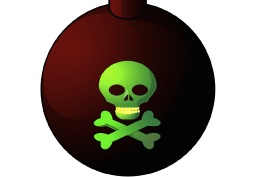Practical Post-Rationality

Models of the mind are never “just theories” — ideas about human nature shape the rules and habits that guide daily life.
A case in point: If people were purely rational in their decisions about risks and rewards, it would be a simple matter to explain to agricultural workers that all pesticides are harmful, be they powders or liquids, and so workers should wear protective gear and take showers at the end of the day.
But real decisions are shaped by conflicting motives, inbuilt mental biases and the distorting effects of supposedly irrelevant forces, like fatigue, love and tradition.
Case in point: Today the American Journal of Public Health is publishing the results of a study of 99 Mexican farmworkers who were working in Washington state in 2005 and 2006. (When it goes online, it should be here.) In the paper, Shedra Amy Snipes of the University of Texas and her colleagues report that the workers didn’t think odorless powder pesticides were as dangerous as liquids (which smelled bad). Chemically, that’s not true, but it’s human nature to be more repelled by bad-smelling stuff than by something that gives no offense.
The workers also sometimes declined to wear protective clothes which would have reduced their pesticide exposure — because that would have slowed them down, and they are paid according to the amount of fruit they harvested. They wanted to bring the most money home to their families. Some also avoided showers and decontamination at the workday’s end, because they were tired and achey (an effect of when in the day they were asked to shower) and because they thought water was bad for an overheated body (an effect of a cultural belief).
These results suggest that farmworkers would be safer from the effects of pesticides if they were paid by the hour (those who are paid that way don’t refuse to wear protection, as being slower doesn’t reduce their wages). Regulators might also consider requiring that dry pesticides contain something to make them smell bad, and launching a campaign to inform people about the importance of decontamination. None of that would be required if people fit the “Rational Economic Man” model. But they don’t, and it’s not a purely academic point.





